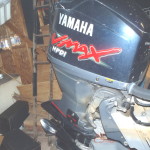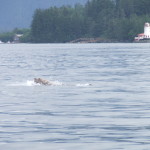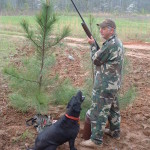There is nothing quite like warming up in front of a fire this time of year. No heaters provide the same kind of roasting warmth as you get from open flames. Inside by a fireplace or outside by a roaring barn fire on a freezing day, the flames will keep you warm. At least on one side.
As a kid we were taught not to play with fire but also were taught how to build fires and cook on them. Every camping trip from the time I was eight years old and sleeping within feet of the house in the back yard involved some kind of fire.
We managed to build them in all kinds of weather, from the middle of the summer when you didn’t want to get close, even to roast a marshmallow, to pouring rain where we had to build the fire under some kind of lean-to. In the winter we curled up near them in sleeping bags, rolling often to try to keep both sides warm. And the glow was very comforting when telling ghost stories around them, but the glow just didn’t go far enough!
Different kinds of wood burned in different ways but we usually just went by what we could find already dead. Our hatchets did chop down small dead trees but mostly we cut up fallen limbs too big to break. Pine straw made a good starter but we usually slipped in some newspaper, too.
Building the fire circle, a some-what round circle of rocks to keep the fire contained, was a tedious process. It took a long time to find enough rocks the right size. But then laying the wood out and getting the fire started was the challenging part. If not laid out just right it seemed we got a big flame for a few seconds when the paper and pine straw lit but then nothing. Wood too big, too damp or stacked wrong just would not light.
Matches were frowned on but we always had some. I tried many times to start a fire by striking flint on steel and even rubbing sticks together but matches always worked. And I always had to turn to them to get my fire started. At least I was prepared, with Strike Anywhere matches with their heads dipped in wax so they would light under wet conditions.
Cooking on the fire was always fun and most of the time the end results was somewhat edible. I loved marshmallows roasted on a straightened coat hanger or stick but always let mine catch on fire. No nicely toasted brown marshmallow with a hot center for me. I wanted mine burned black on the outside and melted on the inside. The hot melted marshmallow would burn your tongue every time but you hd to eat it fast before it dripped onto the ground!
I cooked hotdogs the same way. The only difference was they would not flame up like the marshmallows. But they would have a nice crispy black side with other sides not cooked much at all. But that mixture of textures and flavors just made them better, like a fine five course French meal.
My favorite fire cooked dinner of all time was what we called a “campfire dinner.” I learned it in my RA group at church. A big patty of ground meat was placed on a square of tin foil and sliced potatoes, carrots, onions and a chunk of butter were stacked on top. The tinfoil was folded around it making a sealed pack that was placed on hot coals. When opened you could eat it right from the tinfoil and its steamy goodness was very filling. And you didn’t have to wash dishes!
Breakfast was always a complex challenge, with toast burnt on the open fire, bacon burned on one end and almost raw on the other and eggs scrambled in the bacon grease until most of it was somewhat cooked. I don’t know how many times my friends and I cooked a breakfast like that and survived. The food police would have heart attacks now days seeing kids eat half cooked bacon and eggs – with everything from ashes to pieces of pine straw and egg shells mixed in!
None of the above would have been possible without our great fire building skills. Sometimes when I fire up my fireplace insert I remember those days. Even though I now use a chainsaw and gas powered wood splitter, I still love having a fire. And I still can’t get it started without plenty of newspaper! My central heat and air system just does not keep the house warm right. Not like the fire does.
From the forecast it looks like I will need a big fire the next week!


